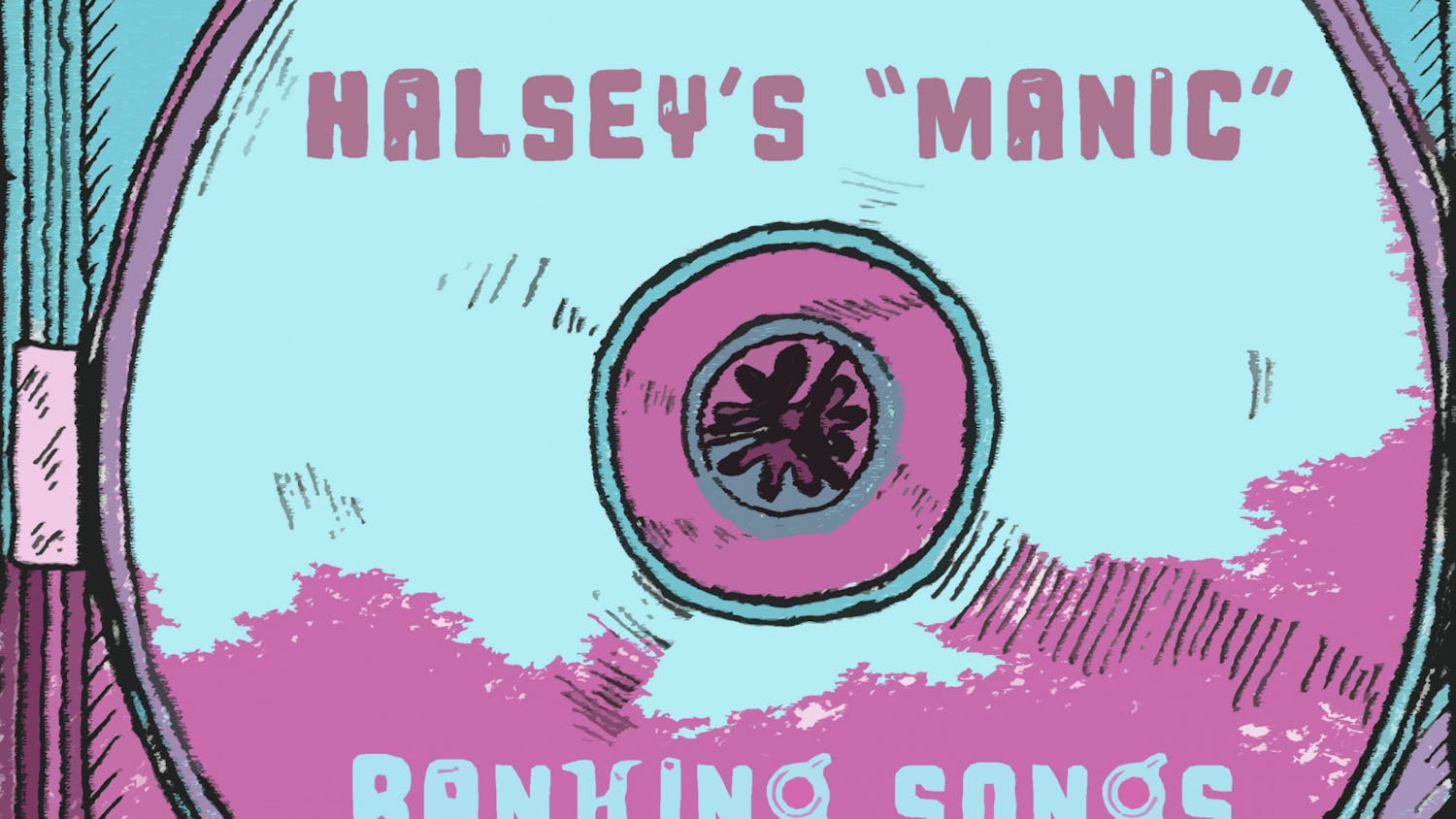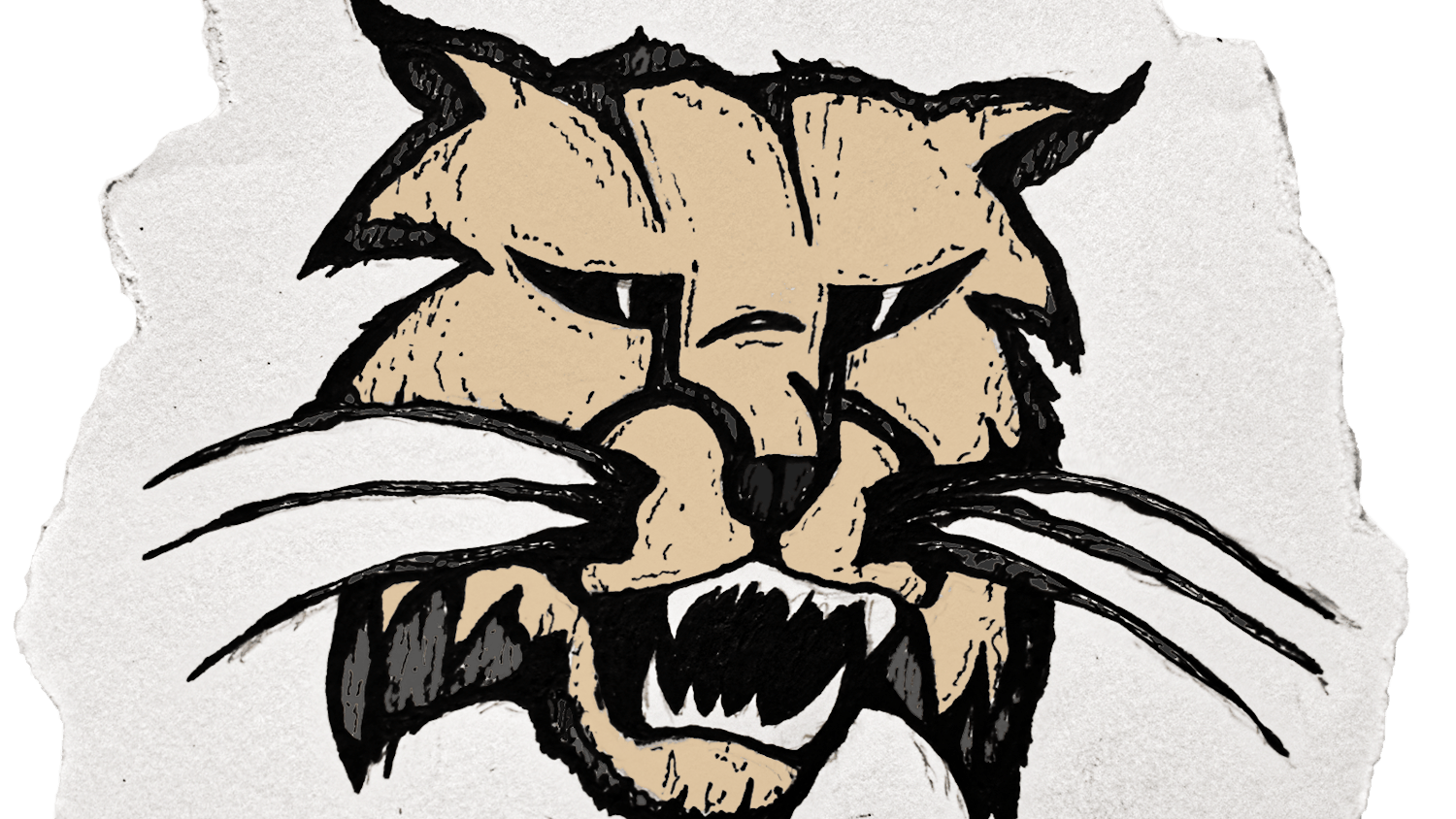Dating is hard. Deciding how or when to divulge mental illness to a potential partner is harder. Wauren Ochs, a first-year graduate student studying geography, can help some with her newly-published solution.
Ochs was diagnosed with bipolar disorder during the pandemic, which she said is common. According to the National Institute of Mental Health, bipolar disorder has an average onset age of 25 but can occur in teens and even children, although that is rarer. Ochs has released a book, "My Chaotic Mind," about navigating relationships for people with bipolar disorder and those who love someone with bipolar disorder.
According to the National Institute of Mental Health, bipolar disorder is a mental illness that causes unusual shifts or changes in someone's mood, energy, concentration and/or activity levels. These moods range in terms of extremely "up," which manifests as bursts of elation, irritation or energy known as manic episodes, and extremely "down," which often involves sad, hopeless or indifferent periods known as depressive episodes.
Originally from Anchorage, Alaska, Ochs has lived in over 10 places during the past few years. Moving frequently, on top of her re-entrance into the dating pool, made her realize she needed a way to inform new people about her bipolar disorder.
"I don't want to date someone for six months and be like, 'by the way, I'm bipolar,'" she said.
Like many online daters, she grew tired of the constant small talk and introductions, so she invented a way to avoid repetition.
"I got tired of talking to people and telling them my favorite color and my birthday, my parents are divorced and all these random stupid little facts all the time," Ochs said. "So, I made a PowerPoint and if I matched with you on Hinge and I found out that you weren't probably a murderer, I'd just casually send you a link to my PowerPoint."
Within the PowerPoint slides detailing her status as a picky eater and that she has a dog, she included a slide that informed potential matches of her bipolar disorder.
"One of the pages says, 'I'm bipolar, don't worry, I'm medicated and go to therapy,'" she joked.
One Hinge match enjoyed the PowerPoint so much that the two are now dating, which influenced Ochs' writing. Her partner asked how she could best support Ochs, and Ochs decided to write a book to help her and others.
"My Chaotic Mind" is a quick but informative read. The 76 pages are chock-full of knowledge about bipolar disorder and how to navigate relationships, both as a person with bipolar disorder and as someone who loves someone with bipolar disorder.
"My Chaotic Mind" is separated into parts, with an introduction and sections for romantic, platonic and familial relationships that each include help for both manic and depressive episodes. While some books exist, Ochs said it was hard to find one that was not heteronormative.
"There's lots of books that are like 200 pages about bipolar disorder, but it's written by old people that aren't in the times," she said. "I use all gender-neutral pronouns most of the time unless I'm discussing myself. It's got a little pride flag on the front, so hopefully, people know that this is like a safe book to read if you're queer."
Ochs described the book as 25% researched-based and 75% personal experience-based. The book uses neutral language and she said readers can just look at the part that is applicable to them and will not miss out.
She said she hopes the book can also address some misconceptions about bipolar disorder, such as the idea that bipolar people will cheat on their partners, particularly in manic episodes, which Ochs disagrees with.
"At least in my experience, I'm aware that what I'm doing are not the best choices, but I still do them but I don't do things like that are really detrimental," she said.
Additionally, Ochs said that when she has a bad day, people assume that she is having a depressive episode.
"I have a bad day and someone's like, 'Did you take your meds? Do you need to see your doctor?' and I'm like, 'I'm just having a bad day, like it's a day it's not like I've been depressed or manic for a week,'" she said. "That's when you should be concerned for someone but it's really quite frustrating when you're having a bad day and people make it about your mental disorder. It's just part of being human."
She said many of her friends joked when they read the book that they could tell whom she was referring to in her personal experience. For instance, those close to Ochs can tell the friendship section was written largely about her best friend, Sarah, to whom the book is dedicated. The pair celebrated their two-year friendship anniversary this week. A few years ago, they met in Hawaii and lived six minutes apart. Although the pair is now in different states, with Sarah in Delaware, Ochs' eyes still light up when she gets to talk about her.
"Sarah is my favorite person on earth," she said. "This book is for Sarah. I wrote this book because Sarah loves me so much."
Ochs recalled a particularly difficult day in which Sarah dropped everything to help her. She said Sarah is a crucial part of her support system. She wants her book to help all people with bipolar disorder or those who love someone with bipolar disorder establish similar support systems.
"Anybody can be in your support system," she said. "You just have to build it from the ground up and find good people that help you when you need it."
"My Chaotic Mind" is available on Ochs' website, at the Little Professor Bookstore, 65 S. Court St., and on Amazon. However, she strongly encourages people to avoid the Amazon option, as the site takes 40% of the $12.50 cost of the book. Those who order through Ochs' site also can benefit from free delivery in Athens, as Ochs will email purchasers directly to give them their copies.
Ochs said all books currently sold will come signed with a personalized note.
"Anybody can support someone with bipolar as long as you're willing and able to do so, you can be a good supportive friend or partner or parent to your person that has bipolar disorder," she said. "If you take one thing away it would be that you're not alone and other people are struggling with this."
km053019@ohio.edu
Editor-in-Chief






